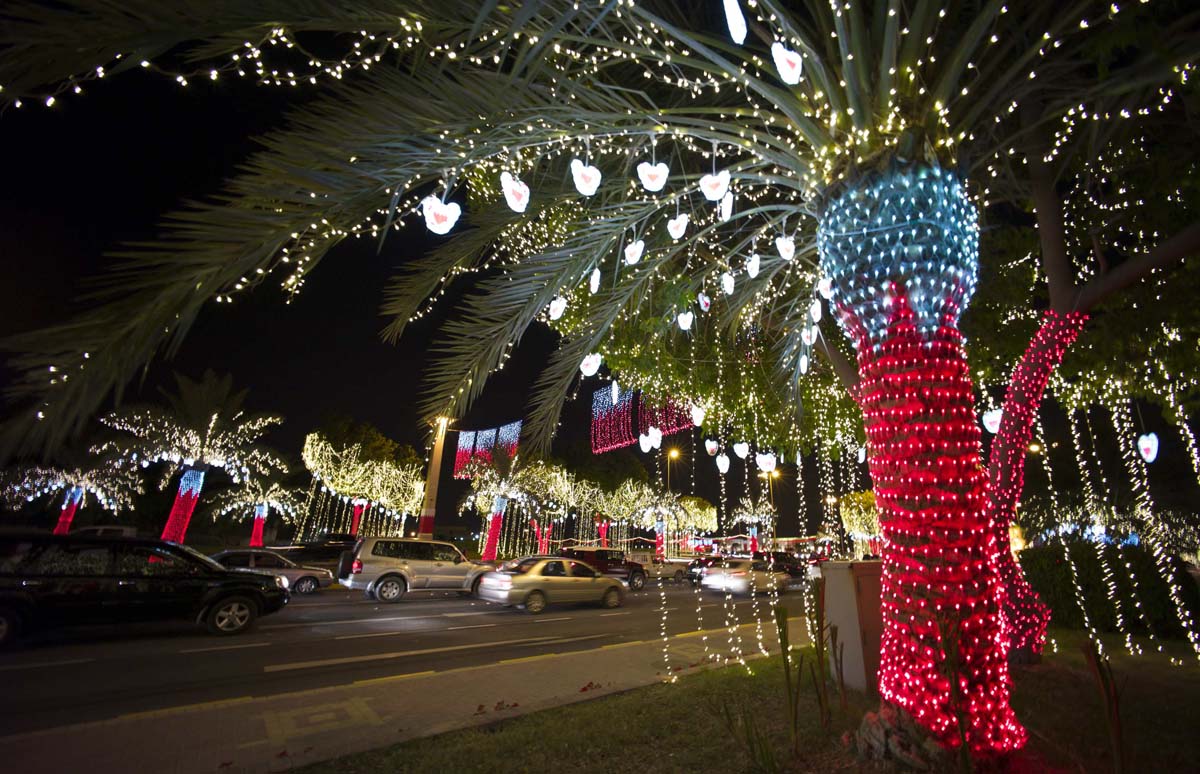28 December 2018 – This post was updated to reflect new information regarding the appeal trial of United Arab Emirates (UAE) human rights defender Ahmed Mansoor, which was postponed to New Year’s Eve.
20 December 2018 – Over the last several years, states in the Arab Gulf, especially Bahrain, have looked to Western holidays as an opportunity to carry out a wide range of political and human rights abuses. Whether its Thanksgiving, Christmas, or New Year’s, the Gulf kingdoms assume that their Western partners will be too preoccupied to issue the appropriate international criticism their actions deserve.
Just last year, on Christmas Day, a Bahraini military court issued its ruling in the case of 18 men who had been accused of being part of a terrorist cell. The court sentenced six of the men to death, seven others to seven years in prison, and acquitted five of the defendants. The court’s decision came after a series of unfair trials and extended periods of arbitrary detention, enforced disappearance, and possible torture. Four of the individuals sentenced to death appealed the decision and, in April 2018, Bahrain’s Military Court of Cassation rejected their final appeal. The following day, the king ratified the ruling, ultimately accepting the outcome of the military trial, which was marred by serious human rights and due process abuses, but commuted the death penalties to life imprisonment.
Thanksgiving this year was a particularly active time for Bahrain, which held its elections for the lower house of parliament on 24 November – the Saturday after Thanksgiving. The elections occurred with severe restrictions placed on civil and political society by the Bahraini government. All of the major opposition societies remained forcibly dissolved and new legislation banned anyone who had belonged to one of these political groups from ever seeking elected office. Likewise, the legislation banned anyone who has served six months or more in prison from holding office. This affected a large portion of the population, given that around 4,000 political prisoners remain in jail, including Sheikh Ali Salman, the leader of one of the major opposition societies that was forcibly dissolved.
Sheikh Ali Salman’s case is also indicative of the Gulf’s history of scheduling major events around the holidays. Sheikh Ali was initially arrested just days after Christmas, on 28 December 2014, and sentenced to four years in prison on free expression charges. He is now serving a life sentence on new, ridiculous charges of ‘espionage’ for communications with Qatar dating back to 2011.
As Christmas and New Year’s approach this year, there is more to be wary of in Bahrain. Moosa Abdulla Jaafar, a former student who was harassed by the Bahraini police, tortured, and sentenced to death in an unfair trial, is currently at risk of execution. Moosa has appealed his sentence and a decision is expected to be made this year on Christmas Day. Also on Christmas Day this year, a hearing is expected to be held for Zakeya Isa AlBarboori. Zakeya has been held in pre-trial detention for 7 months and her lawyers still have not received documents from the prosecution. She had been subjected to an enforced disappearance of more than three weeks, as she was detained by government officials who failed to disclose her fate and whereabouts.
On New Year’s Eve in Bahrain, prominent human rights defender Nabeel Rajab will be facing his final appeals hearing for his trial concerning tweets and re-tweets detailing torture in Bahrain’s Jau Prison and the war in Yemen. If his appeal is denied, then he must serve out his five year sentence, meaning he will remain in prison until 2023. This comes on top of his two year sentence for giving television interviews that dates back to 2016.
UAE human rights defender Ahmed Mansoor also had his appeal hearing, originally scheduled for Christmas Eve, postponed to New Year’s Eve – 31 December 2018. Ahmed Mansoor faces a ten-year prison sentence on charges related to free expression and his use of social media, which the UAE deems as “inciting to sedition and sectarianism” and “damaging the State reputation.”
Saudi Arabia has also taken advantage of the holiday season. On 2 January 2016, the kingdom carried out the country’s largest mass execution in over thirty years, putting 47 men to death, including Sheikh Nimr al-Nimr, a prominent Shia cleric and peaceful social justice activist from the Eastern Province town of Awamiyah who was known for strong criticisms of the Saudi monarchy. Compounding the timing of the execution, Saudi authorities sentenced him alongside known terrorists, sending the message that Sheikh Nimr is himself a terrorist, attempting to obscure his long commitment to non-violence.
Monica Zuraw is an Advocacy Associate at ADHRB





